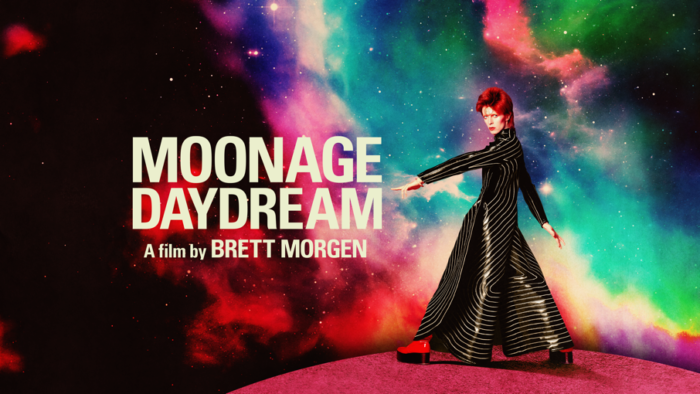VOD film review: Moonage Daydream
Review Overview
Archive material
10Presentation
10Star power
10Ivan Radford | On 19, Feb 2023
Director: Brett Morgen
Cast: David Bowie
Certificate 15
Between the misjudged unofficial biopic and Francis Whately’s trio of superb documentaries, cinema isn’t exactly short of studies of David Bowie, each one giving us a glimpse of the man behind the cultural icon – while also reinforcing the fact that, to some degree, he was intentionally unknowable. While Brett Morgen’s documentary might therefore seem unnecessary, it takes a different route, bursting onto the screen as not just a film about Bowie but a celebration and embodiment of his starman charisma.
Morgen gets a rare – in fact, the first – seal of approval from Davie Bowie’s family, and that pays off richly, with the director given access to 5 million items, from paintings to recordings and journals. You suspect he used all of them. Over Moonage Daydream’s 140 jaw-dropping minutes, what ensues isn’t just a chronicle of the rock star, artist and actor’s career, but a kaleidoscopic collage of Bowie’s impact, influences and introspection. You’ll see flashes of Oscar Wilde and Buster Keaton among the cutout smorgasbord of inspirations, but you’ll also get dizzying doodles and drifting video experiments, all gorgeously intercut with snippets of TV interviews given over the years.
It’s a heady mix, and one that consciously plays with the surface-level imagery with which Bowie was known. There’s a brief dive into the tragedy of his half-brother, Terry, and his relationship with his mum, and a swooning tribute to arrival of Iman in Bowie’s life in later years. But there’s more time spent simply watching him riding round in taxis, gliding up and down neon escalators and more often than not staring directly down a lens.
The editing is flawless, the selection of archive materials impeccable – the documentary’s strength is how it puts Bowie into crystal-clear context, demonstrating just how astonishing a figure he was when Ziggy stepped onto the stage. By the time it boldly delves into synaesthesia to illustrate how Bowie and Brian Eno were trying to find a new language of music, you also understand afresh the gulf left behind after Bowie’s departure – there is an overwhelming sense of the man, the celebrity and the artist being condensed into something timeless but also transient.
















